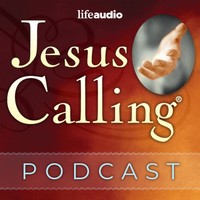
Here's A Look At The History And True Meaning Of The Christmas Tree
November 24, 2020

Here's everything you need to know about the true meaning of the Christmas tree and how it has evolved throughout history.
As the holidays get closer, more and more decorated Christmas trees can be seen twinkling through the windows of homes across America. For generations, adorning the tree has been a holiday tradition for families across many nations. But how did this tradition begin? How does the evergreen represent the Christian tradition?
RELATED: The Story Behind Christmas Spider and Tinsel on Your Tree
Where did the tradition of the Christmas tree begin and does it have a pagan origin?
Ancient Pagan Origin Of The Christmas Tree Tradition
In the ancient Egyptian tradition, many celebrations occurred around the time of the Winter Solstice, which is the shortest day and the longest night of the year. The Egyptians believed that this was when the sun god, Ra returned in strength. The solstice symbolized a time of renewal and hope. To celebrate, the people filled their homes with evergreen boughs. They chose the evergreen trees because they maintained their color throughout the harsh winter months. Other people groups, including Roman and Celtic cultures, hung evergreens during the Winter Solstice in celebration, and to keep away evil spirits and illness.
The Tradition Evolves
Most historians believe Christmas trees originated from a guild in Freiburg, Germany, who decorated evergreen trees with fruit, tinsel, wafers, and gingerbread to perform “Paradise Plays” on Christmas Eve. These plays celebrated the story of Adam and Eve. In the 16th century, the plays were banned from the public in many places. This corresponds with the time in which Christians first began to bring evergreen trees into their homes to celebrate Christ. Families who could not afford decorated trees simply stacked wood in celebration. These “Christmas pyramids” evolved into wooden shelves holding figurines, candles, and even a star. Eventually, the paradise tree and Christmas pyramid merged to become the modern Christmas tree. The tradition remained in Germany until the 19th century when people began emigrating from Germany.
History Of The Christmas Tree Legends
Credit: Pexels/Jeswin ThomasThere are several legends involving how Christmas trees came into existence. The first comes from the English monk Boniface. In the eighth century, Germanic pagans were making sacrifices to the Greek god, Thor. The Benedictine monk cut down the oak tree where the sacrifices were taking place and converted the idolaters to Christianity. According to the legend, a fir tree grew from the fallen oak. The evergreen represented the image of God and new life in Christ.
RELATED: Story Behind Willie Nelson’s Christmas Song ‘Pretty Paper’
Another legend of the Christmas tree stems from Martin Luther. Some believe the Protestant revolutionary started lighting candles in trees after walking through the woods on a snowy night. The sight of the moon hitting the snow-glistened trees reminded him of the light of Christ that came down from Heaven. It is also from this experience that inspired him to pen the lyrics to the 1535 Christmas hymn, “From Heaven Above to Earth I Come.”
History Of The Christmas Tree Tradition In The U.S.
Until the mid-nineteenth century, the Christmas tree was seen as a primarily pagan tradition in the United States. The early Puritan settlers did not accept the German tradition initially because of its cultic roots. In 1659, a law was established in Massachusetts outlawing the celebration of Christmas, with the exception of church attendance. Hanging decorations of any kind was outlawed, especially on Christmas trees. As more German immigrants entered America, the tradition became more accepted.
In 1848, the London News published an image of Queen Victoria and Prince Albert with their family celebrating around their decorated tree. This photo and its reprints in America popularized the modern idea of the Christmas tree, with its glistening lights, shiny bobbles, and awaiting presents.
Since the 19th century, Americans have embraced the evergreen tree as an annual staple to Christmas cheer. The lighting of the tree in Rockefeller center, as well in other hometowns often symbolizes the beginning of the holiday season.
Meaning Of The Christmas Tree Christian
Credit: © Getty Images/GyroWhen you think of Christmas Day, one of the first images that comes to mind is the Christmas tree. But what is the religious significance? While there is no overt reference to an evergreen treen in relation to the actual birth story of Christ, believers have attached religious meaning to the once pagan symbol.
RELATED: The Religious Meaning Behind ‘The Twelve Days Of Christmas’
The Choice of the Evergreen
The evergreen tree is a tree that maintains its color throughout the year. Even in the depths of winter, the evergreen tree shows its life. This characteristic of everlasting life represents the life we have in Christ (John 3:16).
The Shape of the tree
The triangular shape of the Christmas tree has often been used to reference the Holy Trinity (Matthew 28:18-19). The upward pointing branches often symbolize our praise to God.
The Lights on the tree
For many Christians, candles or lights on the tree signify how Jesus came as the light into the world. The star placed atop the tree represents the star the wise men followed to Bethlehem (Matthew 2:9).
Presents Under the tree
For some, presents under the tree represent the gifts the wise men brought to Jesus (Matthew 2:11). For others, the presents represent the gift of salvation we have through Jesus (Romans 3:21-22).
The Cutting of the Tree
When the evergreen tree is cut, it is struck down to its death, only to be raised to glory in splendor as a decorated Christmas tree. This transformation of the tree symbolizes how Jesus died on a tree and was raised to new life on the third day.
Should Christians Have Christmas Trees in Their Homes?
While most people never really think about the history or the practice of putting up a Christmas tree, some Christians do not celebrate the season with an evergreen. Here are a few reasons why.
- Jeremiah 10:1-5 – In this passage of Scripture, the Lord speaks through the prophet and tells the people to not adhere to the idolatrous practice of cutting down trees and decorating them with gold and silver.
- Pagan Historical Associations – Some families do not place Christmas trees in their home because of the pagan origins. They instead opt for other decorations, such as a nativity to remind them of the birth of Christ.
- Distraction from Jesus – Some Christians do not place a tree in their home because the gifts and glamour take away from the celebration of the birth of Jesus.
If we take an honest look at the tradition of the Christmas tree, the roots and religious symbolism is not overwhelmingly representative of the birth of Christ. Yet, the biblical arguments against it are not vast either. The principle derived from Jeremiah 10:1-5 is to not participate in idolatry. The cultural practice of the passage happened to be the cutting and decorating of trees.
Ultimately, the choice to celebrate with a Christmas tree during the holidays is a personal one. While many people do focus more on the dazzling aspects of the celebration, there can be beauty in the symbolism. First Corinthians 10:31 states, “So, whether you eat, or drink, or whatever you do, do all to the glory of God.” This passage gives us freedom to choose to celebrate the birth of Christ in a way we will connect to God most intimately. Yet, as we choose in freedom how to celebrate, let us remember to offer grace to those who choose to celebrate differently.
About The Author
Cortney Whiting is a wife and mom of two preteens. She received her Master of Theology Degree from Dallas Theological Seminary. After serving in the church for nearly 15 years, Cortney currently teaches at a Christian school and writes for various Christian ministries. You can find her at her blog, https://recapturefaith.com.
YOU MAY ALSO LIKE: 10 Christmas Carols that Tell the Real Story of Christmas
LISTEN: The Moment You Never Noticed in A Charlie Brown Christmas
Credit: iBelieve
Featured Image: © Unsplash/Mike Blank
Mel is the senior writer for GodUpdates, finding, writing and sharing Christian, uplifting, and health-related stories from around the world. Mel has a passion for writing and graduated with a degree in English from Randolph-Macon College in Virginia. When she’s not researching and writing stories, Mel is very active in her church. You can usually find Mel playing board games with her husband and two young girls, giving someone a hug, or hunting down a good cup of coffee!
Today's Devotional
A Prayer to Lead Us to the Manger - Your Daily Prayer - December 14
Read Today's DevotionalToday's Devotional
A Prayer to Lead Us to the Manger - Your Daily Prayer - December 14
Read Today's DevotionalPast Stories
- They Said He Might Not Survive, but God Had Other Plans, Teen Burn Victim Is Finally Going Home
- In Their Deepest Grief, a Family Looks to God for Hope After Losing Their Son
- Students Learn Sign Language to Sing ‘Happy Birthday’ to Their Deaf Therapy Dog
- Teen Scouts Spend 2 Hours Carrying Injured Hiker to Safety After Finding Her on Mountain
- Born at Just 1.3 Pounds, This Tiny Miracle Baby Is Finally Heading Home From the NICU
- Couple Who Just Celebrated Their 83rd Anniversary Share the Key to Their Long Marriage
- Mom Thought Her Son Was Dead, But God Worked a Miracle, and His Life Was Saved
- Senior Couple Met at the YMCA, Then Get Married in the YMCA Pool
- Hawaii Lifeguard Still Recovering 11 Days After Shark Attack Describes the Moment It Struck
- Woman Gets a Glimpse of the Past When She Finds a Love Letter From WWI in Her Attic
- He’s 98, a WWII Vet, And Finds Joy Working at Lowes 3 Days a Week
- After Being Diagnosed With Autism at 3, One Man is Following His Dreams and Inspiring Others
- Texas Woman Finds Her Wedding Ring After Thinking Everything Was Lost in a Fire
- This Christmas, the Widow of a Beloved Santa Receives a Gift That Reminds Her She’s Not Alone
- She Wasn't Supposed to Live Past 4, Now at 20, Woman Born Without a Brain Is a Living Miracle
- Family’s Tree Will Shine for Millions: Widow and Son Donate 2025 Rockefeller Center Christmas Tree
- From a DNA Match, a Woman Meets Her Biological Father For the First Time
- Nearing 100, Dick Van Dyke Says the Secret to His Long Life Is Simple: ‘Never Stop Singing'
- When Floodwaters Rose, One Teen’s Courage Became a Lifeline for Strangers
- 2-Year-Old Mini Goldendoodle Alerts Family of House Fire Saving Their Lives
- Police Show Grace and Humor After Teens Toilet Paper Their Headquarters
- First Responders Pull 40-Pound Dog to Safety After Cliff Fall in San Francisco
- Volunteer Firefighter Overcomes Tragedy to Serve Her Community Again
- When Mom Suffered a Seizure, Her 3-Year-Old Son’s FaceTime Call Saved Her Life
- Teenager Opens Up Burger Joint and Gives Back By Offering Free Meals to Veterans All Year Long
- Idaho Man is Rewarded For His Act of Kindness by Mowing a Stranger's Lawn
- A Girl's Volleyball Team in Texas Raises Money to Buy Their Custodian a Car
- After Decades Apart, God Leads a Cancer Warrior Back to Her Birth Mother
- Mother Notices Something Isn't Right With Her Daughter's School Bus and Saves 22 Children
- Lost Dog is Found Using His 93-Year-Old Owner's Dirty Socks
- At 80, She Became the Oldest Woman to Hike the Appalachian Trail
- In Their Grief, These Parents Found Hope, When Their Son’s Organs Saved More Than 100 Lives
- Wild Bear Finds His Way Into a Zoo and Starts Mingling With the Locals
- She’s 101, Still Working Six Days a Week—and Says She Wouldn’t Have It Any Other Way
- Retired Teacher Needed a Kidney, and a Former Student Answered the Call
- When a Dog Fell Into Danger, This Officer Dove In to Save Him Without Hesitation
- 10-Year-Old Florida Girl Scout Saves Her Father's Life Using Her First Aid Training
- Two-Year-Old Found By A Volunteer and K-9 After She Wandered Off and Was Missing For Hours
- Family and Friends Celebrate the Life of a Woman Who Loved So Deeply
- North Carolina Couple Win the Lottery and Can Finally Go On Their Honeymoon After 31 Years
- Quick-Thinking California Teens Rescue Surfer After Ocean Injury
- 8-Year-Old Boy With Rare Health Condition Experiences Life as a Firefighter for a Day
- British Man and His Skydiving Instructor Survive Falling 11,000 ft to the Ground After Malfunction
- He Was Having a Heart Attack, Then His Next Door Neighbor Came and Saved His Life
- 23-Year-Old Who Lost Both Parents in the Same Month is Now Guardian of His Little Brothers
- Her Dog Was Finally Found 2,000 Miles From Home After Going Missing During a Storm
- Brothers Out on a Walk Didn't Think Twice about Saving a Drowning Boy
- Young Man and His Father Help Their Community by Providing Free Lawn Care to Those in Need
- Nursing Home Resident in Indiana Gets a Touch of Disney Magic Without Leaving Home
- Police Dog Earns Yummy Reward From McDonald's When He Finds a Missing Man With Dementia
Top Artists
Top Music Videos

toby mac TobyMac Drops ‘a Lil Church’ Official Lyric Video

Anne Wilson Anne Wilson Releases ‘Til the Road Runs Out’ Lyric Video
![Gaither Vocal Band - Mary, Did You Know? [Live]](https://i.swncdn.com/cdn/160w/godtube/2012/08/31/413405-004.jpg)
Gaither Vocal Band Gaither Vocal Band - Mary, Did You Know? [Live]

chris rupp Beautiful 'O Come All Ye Faithful' Cypress Fyre A Cappella Cover

Anne Wilson Anne Wilson's 'God Story' Lyric Video Inspires and Uplifts with Every Line
Blog
At GodTube, you’ll find daily inspirational videos to lift your spirits and encourage you in your walk with God. Popular videos include worship music from your favorite Christian artists, cute videos with adorable kids and animals, hilarious videos from Christian comedians, user-uploaded videos, and clean viral videos to brighten your day.









